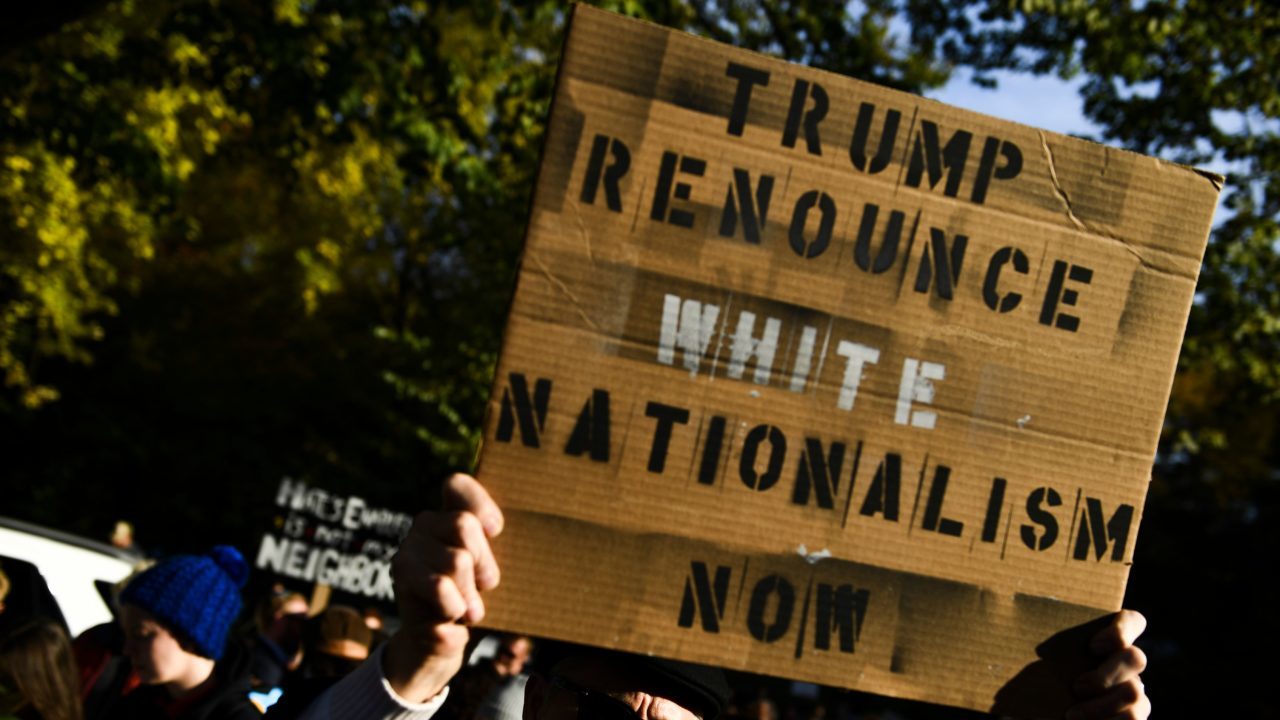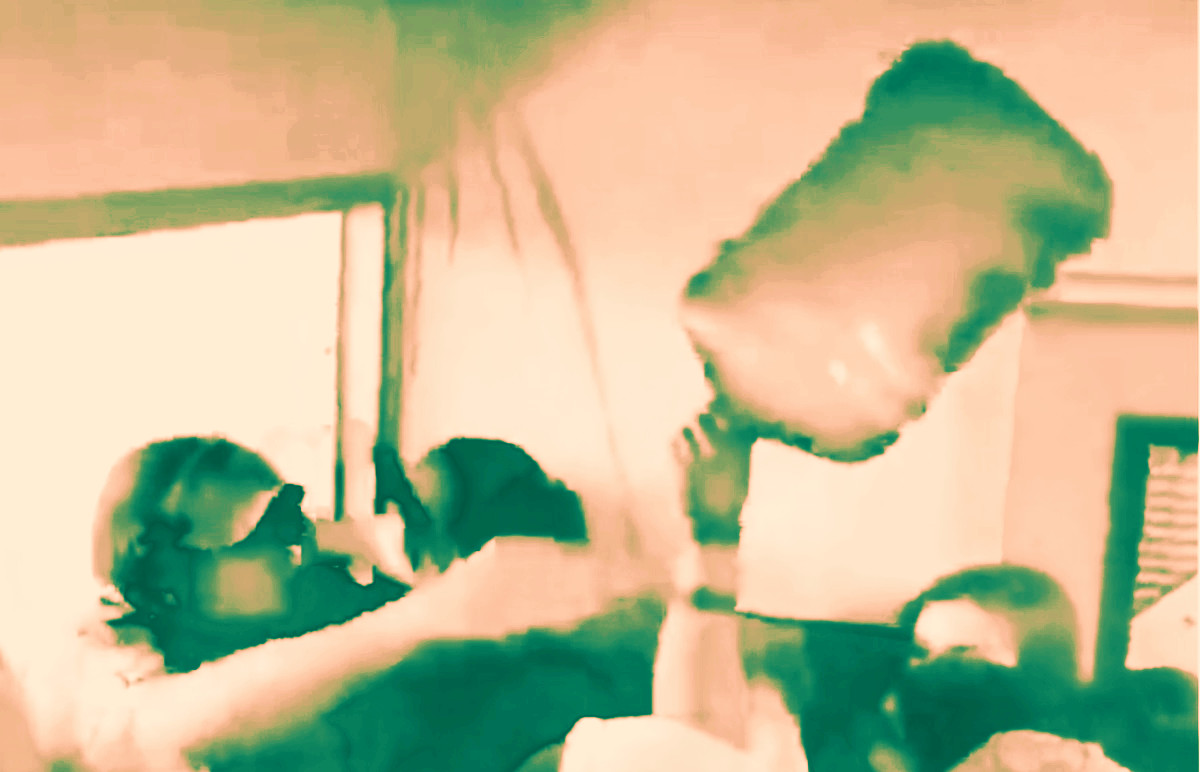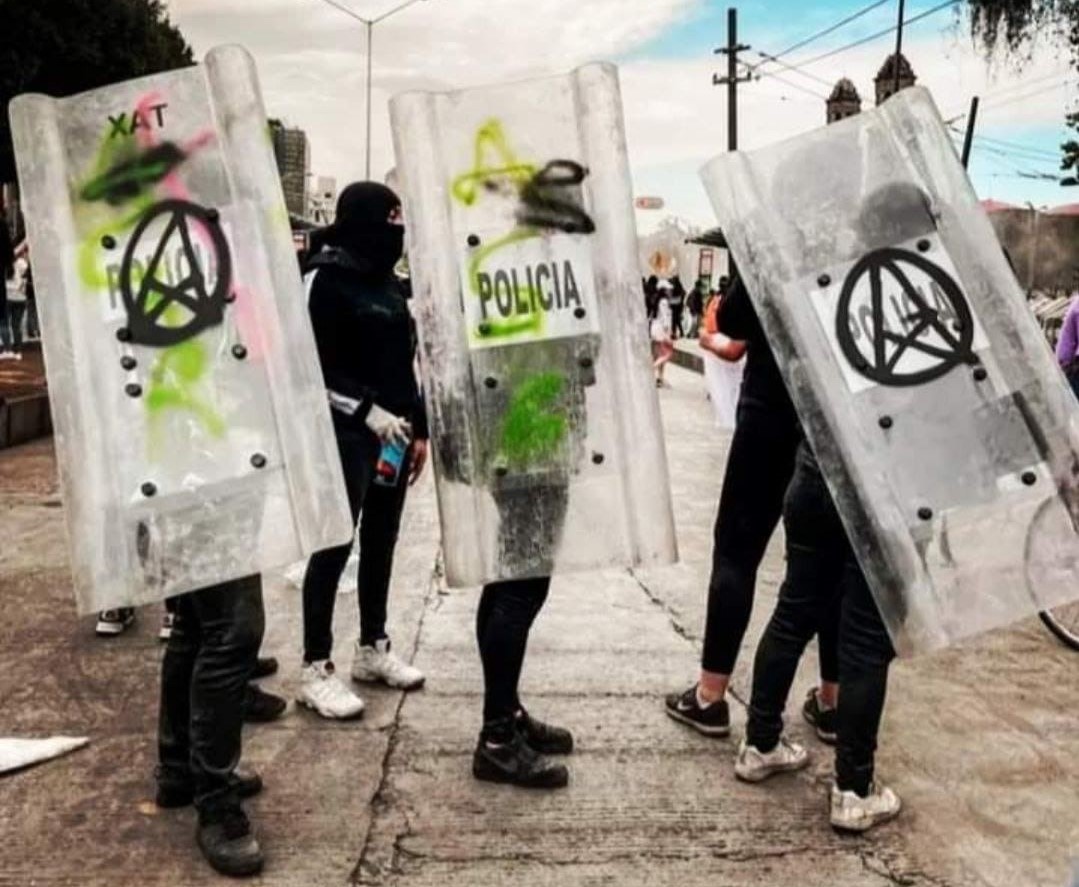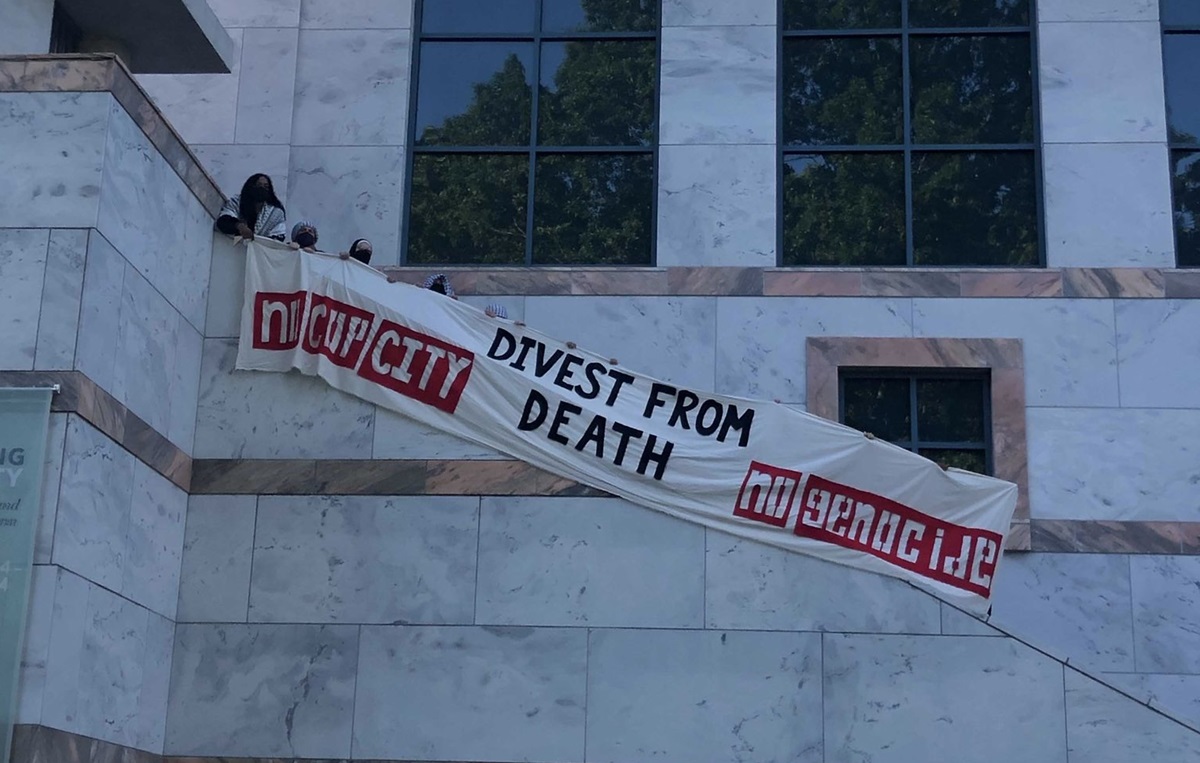Filed under: Analysis, Anarchist Movement, Anti-fascist, US

A Jewish anarchist responds to the Jewish nurse who treated Robert Bowers and argues that they would have taken a different path.
On Saturday, October 27th, Robert Bowers entered the Tree of Life synagogue in Pittsburgh, yelled “Death to all Jews!” and murdered 11 people who were attending Shabbat services.
Bowers is an avid white supremacist and anti-Semite, who posted a barrage of racist and anti-Semitic content on social media. Unsurprisingly, because Bowers is a white man, the police apprehended him alive even after he shot at them, and he was taken to the ER at Allegheny General Hospital where a Jewish trauma nurse, Ari Mahler, saved Bowers life. A week later, Ari Mahler released a statement about that experience, and what it meant to him to be a Jewish man saving the life of an anti-Jewish murderer. Although there are parts of Mahler’s statement that resonate with me, the overall piece was about the power of love. As an anarchist, I understand that “the power of love” will not bring about the world we want to live in, a world without white supremacy, a world where mosques, black churches and synagogues are not targets of hate crimes. This is a Jewish-anarchist response to Mahler’s statement:
He starts out by writing about his personal experience with anti-Semitism. One sentiment he writes resonates strongly with me as I navigate how to be both Jewish and an anarchist in a scene in which subtle anti-Semitism is perpetuated by anarchist goyim. Mahler writes:
“As an adult, deflecting my religion by saying “I’m not that religious,” makes it easier for people to accept I’m Jewish…“I’m not that religious,” is like saying, “Don’t worry, I’m not that Jewish, therefore, I’m not so different than you,” and like clockwork, people don’t look at me as awkwardly as they did a few seconds beforehand.”
In the anarchist scene, this is true for those of us who identify as culturally Jewish, as well as religiously Jewish. Mahler is right in saying that to be openly Jewish means constantly reassuring others, directly and indirectly, that you aren’t “that Jewish.”
In the rest of Mahler’s statement, however, he explains why he feels that treating Bowers with dignity and respect was the “right” choice. I understand that Mahler had a job to do. I understand that he took an oath when he received his nursing license and that he could be fired for refusing to treat Bowers. But what is he actually saying when he says:
“I didn’t say a word to him about my religion… I wanted him to feel compassion. I chose to show him empathy. I felt that the best way to honor his victims was for a Jew to prove him wrong. Besides, if he finds out I’m Jewish, does it really matter? The better question is, what does it mean to you?”
What does it mean to “prove [Bowers] wrong?” By saying that treating Bowers with empathy and compassion is “proving him wrong,” then Mahler is saying, even if he doesn’t realize it, that not treating Bowers with empathy and compassion would be proving him right. He is saying that if a Jew were to act out of anger, choose not to feel empathy with a racist murderer, or used violence (whether active or through neglectful actions) against a racist murderer, than that Jew would be proving Bowers right. His statement implies that that Jew would be deserving of death, as Bowers believes.
As long as there has been anti-Semitism, there have been Jews who fought back. Jews who risked their lives by refusing to stop practicing their religion, by refusing to give up their languages, by sabotaging infrastructure, by planting bombs that later blew up trains and houses where anti-Semites could be found, by stabbing the perpetrators of anti-Semitism. The idea of “no platform” (refusing any platform for fascists) originated with Jewish anti-fascists. These Jews who fought back were punished with death or imprisonment. And yet, they continued to fight back. We continue to fight back.
Before assimilation, the Jews who fought anti-Semites were murdered, tortured and imprisoned, though their actions saved countless lives and inspired generations to come. The Jews who remained passive, who didn’t fight back, who tried to blend in—they were murdered, tortured and imprisoned too. After the Khorbn (the Holocaust), the anti-Jewish strategy of genocide morphed into the anti-Jewish strategy of assimilation. The goal of assimilation, and the reason many Jews chose to assimilate without a fight, was to show the goyim that they were not that Jewish, that is to say, that they were no different than the goyim themselves. Assimilation means not challenging the status quo. It means blending in and not “causing trouble” by showing that you are different. When racism and anti-Semitism are the status quo, assimilation means not fighting back. Fighting back against anti-Semitism would show just how Jewish we are, that we find inspiration in the violent and direct acts of self-determination that our ancestors practiced against their oppressors, and that we believe not only is it okay, but also necessary, to understand that Jewish self-determination means continuing a violent fight against anti-Semitism.
Mahler chose to confront a white supremacist mass murderer with compassion and empathy because it was the only “respectable” option. Violence is sanctioned only when used by the state against enemies of the state. For the vast majority of history, Jews have not only never been part of the State, they have always been diametrically and antagonistically opposed to it. The State has always been the fascist entity murdering Jewish people. And if you are not part of the State, passivity and obedience are the only ways to assure you will not be seen as the enemy, as an “other.” Only by refusing to invoke a long and inspiring history of Jewish revolt, only by practicing complete passivity as mandated by the status quo of the State, would the goyish world accept Mahler as one of them.
Is that not exactly what Mahler says he struggles with when he says, “As an adult, deflecting my religion by saying “I’m not that religious,” makes it easier for people to accept I’m Jewish…”? Is that not exactly what he understands to be an anti-semitic form of “acceptance?” Mahler never told Bowers that he was Jewish. He says that practicing compassion proves Bowers ‘wrong’, but by not telling Bowers he is Jewish, he is not trying to tell Bowers directly that he was wrong. Instead, he says it doesn’t matter what Bower thinks, only what “you” the public think. By trying to prove to the public that Bowers was wrong, he is admitting that the public thinks Jews deserve death too, unless we show through our own obedience that we are not like the Jews of the past, the ones who fought back, the ones who were a threat to gentile society. When he says, “…if he finds out I’m Jewish, does it really matter? The better question is, what does it mean to you?” he is assuring the public that although he is Jewish, he is one of them. He protects white supremacists, just as the rest of the mainstream white public does. He’s not that kind of Jew, he is one of the good ones. One of the obedient ones. He accepts his place in whiteness and will do what he can to uphold that role.
Mahler goes on to say:
“Love. That’s why I did it. Love as an action is more powerful than words, and love in the face of evil gives others hope. It demonstrates humanity. It reaffirms why we’re all here. The meaning of life is to give meaning to life, and love is the ultimate force that connects all living beings…you, the person reading this, love is the only message I wish instill in you. If my actions mean anything, love means everything.”
I agree with Mahler that love is powerful. I wouldn’t be an anarchist if I didn’t love fiercely and intimately. But I hate just as fiercely and intimately as I love. I hate the people that hurt us, that poison us, that make this world toxic and unsafe. I hate the police that imprison us, the men that assault us, the racists that shoot black teenagers in their own neighborhoods and then join the army to murder children of color in other countries. I hate the people who shoot up synagogues and I hate the people who tell us not to revolt afterwards. I hate Robert Bowers. I hate that he continues to live after murdering eleven people. I don’t hate Ari Mahler, the Jewish nurse who saved his life, but I hate that we live in a country where Jews are applauded for remaining obedient to our assimilated role in white supremacy.
Mahler says, “Love in the face of evil gives others hope,” but who are these “others” that Mahler speaks of? While mistakingly equating love with “peace” (the coercive agreement with the State that we will not revolt), Mahler is giving hope to others that they will not be affected nor their position in white supremacy challenged. White people want to feel safe that no matter what, their inherent power is never challenged. Seeing a white supremacist who just murdered eleven Jews treated respectfully by a Jewish nurse sends the message to white people that their position in this system is safe. The process of assimilation is ongoing. Every time a Jew acts in a way that supports white supremacy, assimilation is strengthened and white people can heave a collective sigh of relief. As an anarchist Jew, seeing a white supremacist treated with dignity does not give me hope. Instead, it fills me with rage and fear that other white supremacists will see what Mahler did, and know that the anti-Jewish strategy has and continues to work.
People like Bowers committed genocide against my ancestors because their very existence threatened white supremacy. It is for this same reason that the police wage war against black folks and that Indigenous people are not allowed the land they have lived on since the beginning of their history. The very existence of people of color threatens white supremacy, and white people will never sleep easily knowing that obedience can turn quickly to revenge. White Jews hold two allegiances. So little time has passed since the Khorbn that we easily remember our families who were not considered white and were brutally murdered simply for existing. And yet enough time has passed that we have found a position within white supremacy that allows us —for now— many of the comforts it upholds. Every day we make that choice, between upholding white supremacy or becoming traitors to it. For 2,000 years we knew who are enemies were. On October 27th, one of them walked into one of our holy places, murdered us and wound up on a hospital bed in front of a Jewish nurse. That nurse chose to uphold his obedience to white supremacy. As an anarchist, I choose a different path. Had I been the one tasked with saving Robert Bowers life that day, I would have let him die.
We will outlive them!
-A Jewish anarchist




